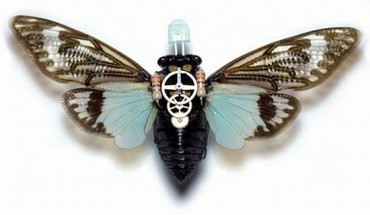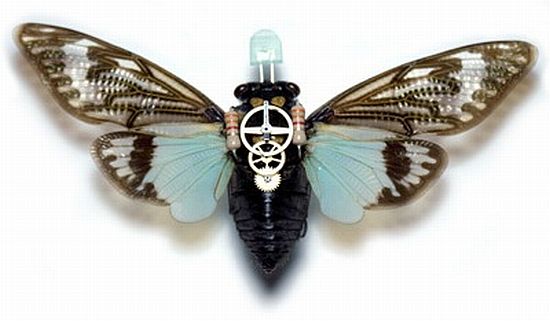(msnbc.com, blog.brickhousesecurity.com)

As unreal as it sounds, according to the blog ?Space War,? he U.S. government is now trying to create an army of insect cyborgs. The government plans to insert tiny cameras and sensors into these insects that would allow technicians to control their movement and collect important data such as video and sensory data.
As much as this sounds like it was taken right from an old spy movie, it is already being developed, and a remote controlled beetle has already been created.
Scientists can already control the flight of real moths using implanted devices.
So far researchers have successfully embedded MEMS into developing insects, and living adult insects have emerged with the embedded systems intact, a DARPA spokesperson told LiveScience. Researchers have also demonstrated that such devices can indeed control the flight of moths, albeit when they are tethered.
The reason governments are choosing insects rather than making their own tiny robots is because powering them would require a large battery. Since the idea of these robots is to keep them as small as possible, a living insect wouldn?t required a huge power source. DARPA, the Defense Advanced Research Projects Agency, believes that the heat and mechanical power generated by the insects themselves as they move around ?may be harnessed to power the microsystem payload? eliminating the need for batteries or other power systems.
If this project turns out to be a success, the military will have tiny living spies that can be used for information gathering purposes, to search out explosives, or to follow key targets without bringing any suspicion to themselves. This will also save the lives of millions of soldiers.
The question, as always is whether they will be used on civilians also, as we saw in the movie ?Minority Report?.
[vsw id=”j4_6NJewrC8″ source=”youtube” width=”450″ height=”380″ autoplay=”no”]





Articles on war such as, Middle Eastern wars, Ancient wars, the Vietnam war, Spies, and much more.
I’ll need a flyswatter really, really bad!